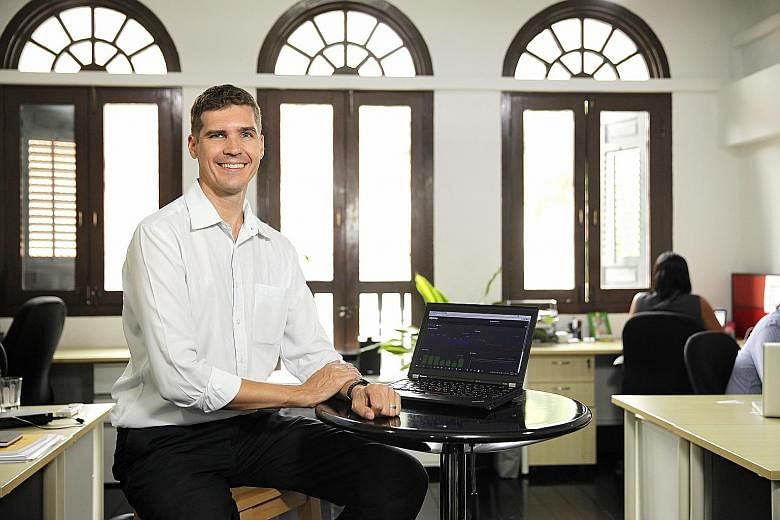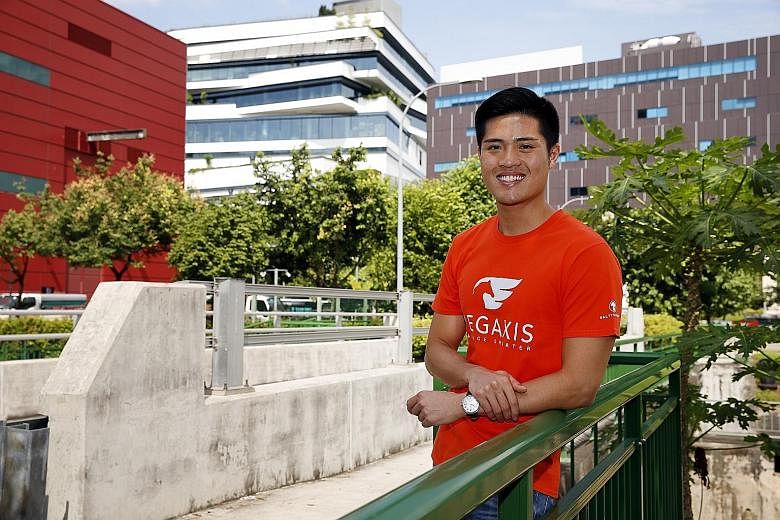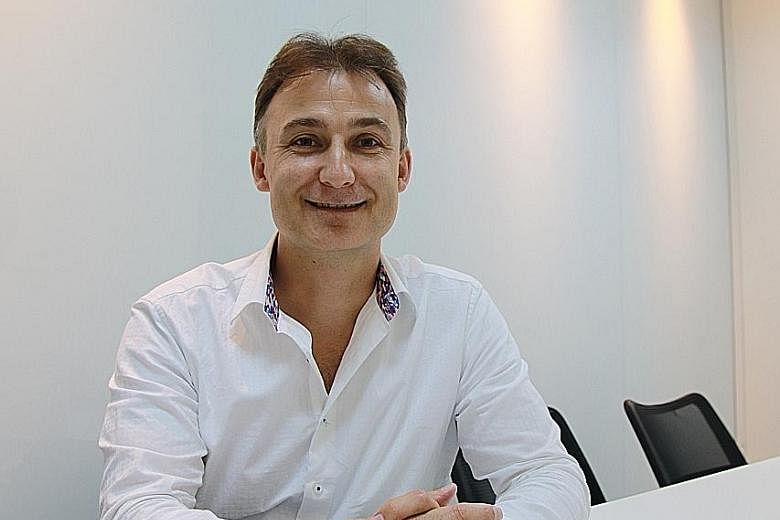Even the building and construction sector - as bricks-and-mortar as you can get - has not been immune to the forces of digital transformation, with more industry players taking advantage of technology to improve how things are done.
A sign of how the once stodgy-looking sector is changing came recently when Singapore held a hackathon on "proptech", or property technology.
The underlying aim was to see if the digital revolution could muscle its way onto building sites the way it has for almost every other sector. The answer was a resounding yes.
Just ask Singapore University of Technology and Design students Vivek Kalyan Sureshkumar, Aravind Satkunasingam Kandiah and Koh Kai Wei, who took the top prize at the August event with a virtual-reality 3D model of a construction site, based on plans produced by an autonomous robot. The undergraduates, who are now weighing real-world tests of their product, said in a joint statement: "We are really excited about the proptech space as we believe there is a lot of opportunity for next-generation technologies to come in and help build buildings faster and more cheaply."
That the industry is still scratching the surface is also the view of Mr Denis Branthonne, who launched start-up Novade in 2013 to automate work systems reliant on pen and paper. The rise of smartphones, he says, has been a leap forward for a paperwork-intensive industry that grappled with a lack of digital connectivity on work sites. "It's amazing, the amount of paper which is used on all these sites," he said. "With these mobile devices, we can digitalise these processes."
Another start-up tackling the issue of messy paperwork is Hubble. Fresh graduate Peter Widjaja, its chief technology officer, said it has been "profitable from day one" because its business model is based on clients coming to it with problems.
"We are paid to develop our product," said Mr Widjaja, who set up Hubble with his friends while studying information systems at the National University of Singapore. "It is highly profitable, I would say, and the business is somewhat scalable."
Revenue hit a "seven-figure" amount last year and the company has seen the number of clients increase from six last year to 15 by the middle of this year. More growth is expected to come, as one of its digital offerings - which targets workforce management - has been approved as an off-the-shelf solution under the SMEs Go Digital scheme, where the Infocomm Media Development Authority pre-approves programs and gives grants for smaller businesses to adopt technology.
Hubble is eyeing moving into either Taiwan or Indonesia, where Mr Widjaja has family in the construction business, by the end of this year.
After a building has been constructed, there is still the challenge of running it. When a new team that was not involved in the design and construction takes over a completed building, "it's a bit like driving a car without a dashboard", said Mr Adrian Bukmanis, co-founder and technical director at energy-management platform Teale Asia, which keeps an eye on live building information to address issues such as energy wastage or air quality.
"We also run automated analytics across that data and we're looking for faults, opportunities, energy savings, behavioural changes within that data," added Mr Bukmanis. "We can now handle larger volumes of data and get to insights much faster than we could previously."
Meanwhile, for all the buzz about smart homes, someone often still needs to flick a switch to turn on the lights - but not at Lumani. The company, set up by three electronics industry veterans, hit the market last year with a platform where sensors detect whether people are in the office and autonomously adjust the lights and air-conditioning. The team hopes to break even by the end of next year. "There is always a strong incumbent, especially in building. We have the existing legacy system," said co-founder and sales and marketing vice-president Vinson Chua. "The challenge is... to let them know that you can have a separate system to co-exist."
Lumani is now looking to bring the product to businesses like convenience stores and budget hotels in Indonesia and is working with a lighting manufacturer to enter the United States by next year.
Another start-up is Pegaxis, with an online marketplace connecting building managers and service providers. Co-founder and chief executive Ted Poh said: "I think that tech adoption in the real estate industry is inevitable due to the diminishing labour supply and increasing labour costs in the industry."
Teale's Mr Bukmanis noted that more building and construction firms are beginning to recognise digital opportunities: "We've got traditional consultants and engineering firms now starting to move more into the space, and you've got your Big Data players... So we've got everybody from the IT side, everybody from the engineering side, starting to meet in the middle."
Singapore has made steady progress as construction site productivity picked up by an annual average of 1.3 per cent since 2009, said Dr Davin Wang, a lecturer at the National University of Singapore's School of Design and Environment.
"Many companies have realised that embracing disruptive proptech technologies is a necessary part of the business transformation process in keeping pace with the changing needs of their customers as well as threats from new competitors."
His colleague, Professor Ong Seow Eng, added: "The speed of such innovation depends rather critically on market and regulatory acceptance and openness."





